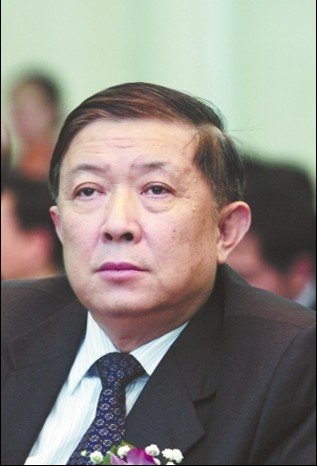Nurture, reform necessary to create Chinese Steve Jobs
- By Duan Yaying
 0 Comment(s)
0 Comment(s) Print
Print E-mail China.org.cn, March 10, 2012
E-mail China.org.cn, March 10, 2012
The idea of the government "manufacturing" a Chinese Steve Jobs is simply unscientific, CPPCC member and former minister of science and technology Xu Guanhua said Tuesday in response to the Ningbo municipal government's earlier plan to develop ten Chinese Steve Jobs within five years through a fund totaling 50 million yuan (US$8 million).
 |
|
CPPCC member and former minister of science and technology Xu Guanhua |
Xu reminded the government that it should cease its destructive enthusiasm for technological development, emphasizing that Jobs' success was due to a favorable market environment.
To that end, he proposed following the so-called mushroom theory, which states that mushrooms will grow by themselves if they are kept in the dark and fed manure and dung. According to Xu, the government needs to create such an environment instead of trying to "manufacture" such a figure in existing conditions.
Xu added that the theory is also applicable to economic growth and stated that one advantage in this area is that the government plays a significant role in non-market competitive fields. However, he cautioned against placing too much emphasis on governmental functions in the competitive market place.
In addition, the former minister called for a radical reform of the government management mode adopted during the era of China's planned economy in favor of a management mode in keeping with the current market economy.
He commented that Chinese government management has not been fully liberated from the planned economic system, despite great progress in certain areas.
Xu attributed the problem to inadequate and inefficient systems of assessing government performance and proposed a shift of assessment from achievements in gross domestic product (GDP) to improvements in people's living standards.
Xu stated that although GDP is indispensable for a country's macro-economic regulation at a national level, GDP-driven assessment must be abolished for government sectors and local governments.
Discussing alternative assessment mechanisms, Xu stated that the performance of local officials would improve if they were assessed according to their achievements in improving people's standard of living, including addressing the widening income gap, medical care and education.
He added that the same is true in both the technological field and intellectual circles. He qualified his point by underlining that scientists are often evaluated in terms of their total number of academic publications and awards. Similarly, he pointed out that professors are often judged solely by the number of papers they had published instead of the quality of their lectures; and that doctors are reviewed by the number of academic prizes won instead of their medical skills.
Xu warned that a wrong system of assessment would push the intellectual circle to the vain pursuit of vanity, thereby encouraging corruption within the academic field. He stated that the system of assessing academics by their awards and publications grew as a result of the absence of any authoritative evaluation system following the post 1978 reform, and dismissed it as unsuitable for modern development.
During a press interview at the sidelines of the on-going session of the 11th National Committee of the Chinese People's Political Consultative Conference (CPPCC), Xu also stressed the importance of the role of small and medium enterprises (SME) in China's future economic growth, by stating that SMEs should be valued on equal terms with big state-owned enterprises in their role of transforming China's economic growth mode.
SMEs contribute to jobs and taxes, and in particular, sources of innovation, Xu said. Industry giants such as Microsoft, Apple and Google have all grown from small beginnings.
Xu urged the government to introduce favorable financial policies for SMEs to help them address their finance difficulties and aid restructuring.
In addition, Xu proposed that the government accelerate measures which help SMEs to cut costs when the enterprises themselves are unable to do so.
He sited textiles industry as an example, suggesting a local government launch a shared design system for the region's textiles enterprises to upgrade their design capabilities.
In conclusion, Xu added that the interests of state-owned enterprises also need adjusting. "[The adjustment is] set to become a challenge to certain people or government sectors," he said. "But we must do it."





